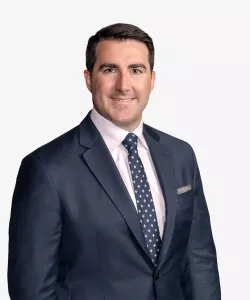House Committee Chairs Direct White House and Federal Agencies to Preserve Documents during Transition Period to the Biden Administration
Headlines that Matter for Companies and Executives in Regulated Industries
House Committee Chairs Direct White House and Federal Agencies to Preserve Documents during Transition Period to the Biden Administration
On November 10, 2020, Committee Chairs from the House of Representatives sent letters to the White House and fifty-two federal agencies to preserve documents. The letters, signed by twenty-one Committee Chairs, signal that increased oversight and more extensive investigations are likely to occur under the Biden administration.
The Committee Chairs noted that the current administration obstructed numerous congressional investigations by refusing to provide responsive information. Accordingly, the letters request the preservation of documents and electronic messages and metadata involving official business that were sent using official and personal accounts or devices. The letters specifically requested that the agencies “preserve all information that relates to all investigations conducted during the 116th Congress, including all oversight requests or demands from Congress.”
In the letter to the Counsel to the President, the House Committee Chairs stressed that President Trump and his counsel should remind all employees, detailees, officials, and all other paid and unpaid individuals in the Executive Office of the President to ensure that they take appropriate measures to collect, retain, and preserve all documents and records in accordance with federal law. The Committee Chairs further reminded the Executive Office of the President that “[a]s the Trump Administration prepares for the transition of power to the new Biden Administration,” it “is the duty of President Trump to preserve” the requested records. The letter further emphasized that “[t]he Presidential Records Act provides that presidential records belong to the American people.”
The letters also suggest that investigations into the current administration will continue and that the Committee Chairs may be interested in a more fulsome look at past inquiries.
All fifty-three letters are available on the House Committee on Oversight and Reform’s website.
Litigation Developments
University of Miami to Pay Millions to Settle Fraud Allegations
A federal False Claims Act lawsuit was unsealed last week, seven years after it was filed by a former University of Miami senior executive. The lawsuit alleged that the university’s healthcare system billed millions of dollars in unnecessary laboratory tests to Medicare and also billed patients hidden charges for clinic visits.
Jonathan Lord, the former chief operating officer (“COO”) at University of Miami Miller School of Medicine, filed the whistle-blower lawsuit in 2013. The COO specifically contended that the university, which operates its medical school out of the public Jackson Memorial Hospital, filed false claims for thousands of medically unnecessary organ transplant tests and overcharged patients for visits. The Complaint further alleged that the fraudulent conduct occurred when the university was dealing with significant debt during a transformation of the medical school into a large academic healthcare system. Lord also alleged that the fraudulent practices were known at the highest levels and were encouraged.
The Department of Justice joined the Complaint and reached an agreement in principle with the school. University of Miami is expected to pay $22 million to resolve the False Claims Act allegations. Lord, who was allegedly forced out of his position by the then-president of the university seven years ago, will receive approximately $4 million.
Two physicians at the Miller School of Medicine also filed whistleblower lawsuits against the university and Jackson Memorial. Because Lord filed his lawsuit first, he will collect from the university’s settlement with the Department of Justice. The physicians, however, will reportedly receive a portion of an undisclosed settlement with Jackson Memorial Hospital.
The Miami Herald’s in-depth reporting is available online.
New York Doctor Resolves Kickback and Fraudulent Billing Claims in Adult Homes Investigation
On November 9, 2020, a New York-based family doctor agreed to pay $150,000 to resolve claims that he paid kickbacks and caused false claims to be submitted to Medicare in connection with alleged care he provided to adult home residents. From October 2015 through April 2016, the doctor allegedly paid medical management companies in adult homes to permit him to receive Medicare reimbursement for services that he did not provide to residents.
Acting United States Attorney for the Eastern District of New York Seth D. Ducharme stressed that “[d]octors who bilk our federal healthcare programs, in the guise of caring for disabled and elderly patients, will be held accountable for their actions.” The settlement resolves claims that the doctor violated the Anti-Kickback Statute.
The press release announcing the settlement can be read here.
SEC News
Whistleblower Awarded $28 Million for Role in Successful Enforcement Action
Last week, the Securities and Exchange Commission (“SEC”) announced an award of over $28 million to a whistleblower in connection with an enforcement action against an unidentified company. The SEC does not disclose information that could reveal a whistleblower’s identity, as set forth in the Dodd-Frank Act.
The whistleblower reported significant information to the SEC, which caused the company to initiate an internal investigation. The information also helped the SEC to decide to open an investigation into the company. The SEC noted that the whistleblower saved time and resources and provided assistance in the form of an interview, testimony, and identification of a key witness. In determining whether an award was appropriate, the SEC also considered that the whistleblower’s information served important law enforcement interests and supported charges against a publicly-traded company and its executives.
According to the press release, the SEC has awarded approximately $715 million to 110 whistleblowers since the first award was issued in 2012. Whistleblower awards can range from 10 percent to 30 percent of the money collected when the monetary sanctions exceed $1 million.
Read more in the SEC’s press release.
Contacts
- Related Industries
- Related Practices






